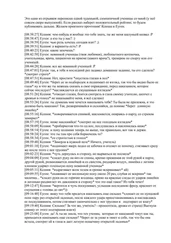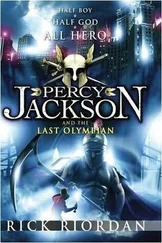They are, it soon turns out, two middle-aged men, sinewy, dark-complexioned creatures, looking just like the laborers who assembled outside the Puerto Ángel municipal offices a few days ago to complain of the poor quality of the drinking water. They will give him a silent but friendly greeting, in the way that only men can greet other men, and he doesn’t know why, but Alexander will be moved to tears by their greeting.
Then Zipolite comes in sight. The owner of the kiosk there will signal to him from afar by means of exaggerated (and in fact totally incomprehensible) gestures that he has water ready: with time, Alexander has fallen into the habit of buying water here on the way back, rather than running through the area with a half-liter bottle in his hand. But first, on the outward run, he will turn left before the kiosk and down to the sea.
After a few hundred meters, he will reach the bay of Zipolite. This is where the hippies go. It is about two kilometers long, and unlike the smaller bay of Puerto Ángel, where the local people bathe, it is almost entirely populated by young foreign tourists who really could pass as hippies, with their hairstyles and the chains around their necks—if they weren’t all a little too well formed, a little too elegant.
Around now they are still lying in their hammocks; they sleep out on the beach under structures on posts covered with palm leaves and called palapas, which the many small bars and beach hotels—so he assumes—rent out cheap. One of them, however, a well-formed and elegant young man, will suddenly join him, and in spite of all his good resolutions, Alexander will almost imperceptibly lengthen his stride.
“Hi,” the well-formed young man will say. “Where’re you just coming from?”
“Puerto Ángel,” Alexander will reply, and the well-formed young man will say:
“Wow, great!”
After a few hundred meters, the well-formed young man will begin panting. He will give up even before they reach the end of the bay.
“Wow, great,” he will repeat, raising a hand in farewell, and Alexander will feel so elated by this unexpectedly easy knockout victory that he decides to run to Mazunte.
He has been in Mazunte before in a shared taxi. He visited the turtle center. Turtles do not interest him in the slightest, but the biker recommended the museum to him so strongly that it would be tantamount to an insult not to take his advice. Once, so the biker told him, there was a factory in Mazunte where the sea turtles who come up at the same time every year to lay their eggs on Mazunte beach—and only there—were brutally slaughtered and made into canned soup. Now the slaughter has finally been forbidden, said the biker, and instead the place devotes itself to the breeding and conservation of turtles. Alexander did indeed spend an hour studying the developmental cycle of the water turtles, looked at the specimens large and small in the tanks at the center, and was touched by the careful way the keepers look after the turtles, cure them when they are sick, and then let them go again, even collecting their eggs if one of the creatures has failed to bury them properly on the beach, and bringing them back to the center to hatch them. He decided to classify this place as one of the few experiences he has had to suggest, in defiance of the many indicating the opposite, that mankind is gradually improving.
The sun will be a good hand’s breadth above the horizon when he runs into Mazunte, the houses of Mazunte will cast dark, angular shadows, and as Alexander passes over the broad beach he will feel, even through his shoes, the heat of the sand where the turtles bury their eggs. The bay of Mazunte is broader than the bay of Zipolite, broader and wilder and emptier. And the sky is higher—unless that is because of the small dose of endorphins that his body gives him after he has run over ten kilometers. A smile will appear on his face. His legs will run as if of their own accord, and his feet will find the firm part of the sloping beach for themselves, the narrow line between sand that is too wet and sand that is too dry, between water and land. The sea will lick in toward him. The sea will intoxicate him. He will rejoice, inaudibly but aloud in the sound of the sea. He will run playfully and with precisely measured steps around the waves as they break higher on the shore. He will be fascinated by the precision of his movements. He will feel as if he were not steering himself at all, as if his body were taking control, as if he were gradually removing himself from whatever controls him—and at that moment, at the moment of stasis, a thought will cross his mind: that all this, with his presence here, will be utterly and irrevocably extinguished, and the thought will hit him with such force that he will have difficulty staying on his feet.
When he gets back to Puerto Ángel today, he will have run twenty-four kilometers. He will climb the steps with that typical little tugging sensation in his Achilles tendons, he will clearly feel the muscles at the back of his thighs, and the dull pressure in his joints from the strain put on them hundreds and thousands of times. He will patiently go through the obligatory stretching exercises at the wall beside his room, will raise and then hollow his back, until the stiffness gives way with a liberating click, and without going to too much trouble about it he will fend off the hope, surfacing yet again, that his diagnosis is a mistake. He will sit on the broad stone parapet of the terrace in his sweaty shirt, with a bottle of drinking water in his hand, and at least for a while will find it pleasant to feel the hard pillar behind his back.
The tourist backpackers who arrived yesterday will come out of their room: a friendly young couple who have probably just done their final school exams, the girl an immaculate beauty, the young man tall and rather thin. They will come out of their room and ask Alexander where they can hire snorkeling equipment.
Alexander will not be able to tell them.
The couple will assure him that that’s no problem. They can always ask down in the village.
When they set out they will wave to him as if to an old friend, and Alexander will wave back. He will watch them go along the corridor and turn off to the steps; he will see them stop briefly on the top step to negotiate about something, their discussion being inaudible to Alexander. The beauty will wrinkle her brow. The thin young man will take her hands in his. His shoulder blades will stick out under his earth-colored T-shirt like cropped wings.
Alexander will go to shower. Bracing himself against the wall with both hands, he will let the hot water run over his back and his legs for a long time—for as long as the hot water in the heater lasts.
Then he will put his father’s folding chessboard under his arm, and shivering slightly now in spite of the heat, he will climb down to the beach. He will sit in his deck chair under the blue sun umbrella, and before he turns to his afternoon occupation he will buy something for lunch from one of the Mexican women who go around on the beach here.
He always buys from the same woman, and always the same thing: a plastic tub of peeled fruit and three tortillas; however, the woman, when she comes his way—after waiting a certain time, for the look of the thing—and shows him her few wares, will always look at him with the same inquiring (but far from pleading) glance; once he has his tub of fruit and his tortillas, she will calculate the cost in her head and come to a result that is slightly different every day, which Alexander ascribes to the mixture of fruits on a particular day (today it is mango, pineapple, and melon), and which in practice means nothing, because the sum of money that, adding in a small tip, he hands her at the end of her calculation is always the same anyway. The woman, Alexander assumes, is anxious only to give him—or herself?—a feeling that this is a transaction between equals, which of course is far from being the case. Nothing is more obvious than their inequality—an inequality that, and this much is clear to him, ultimately depends on nothing but a few bills. Stolen bills into the bargain.
Читать дальше












